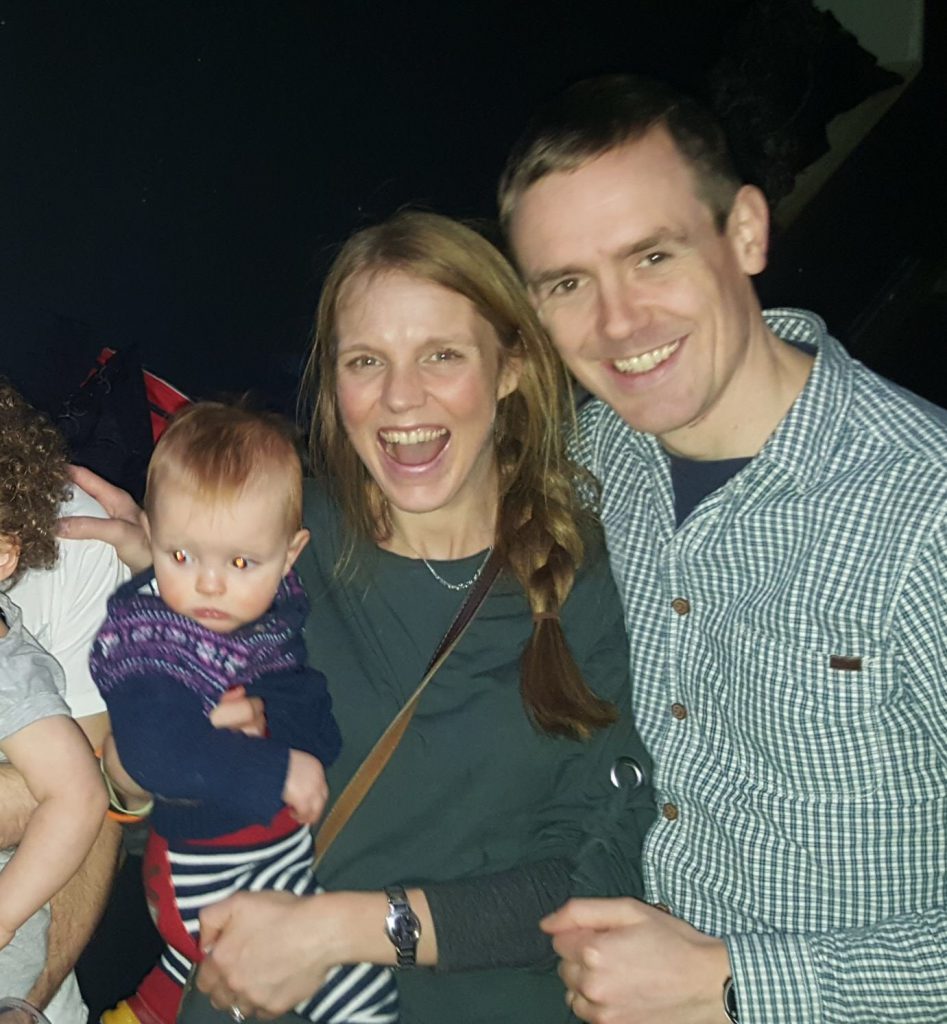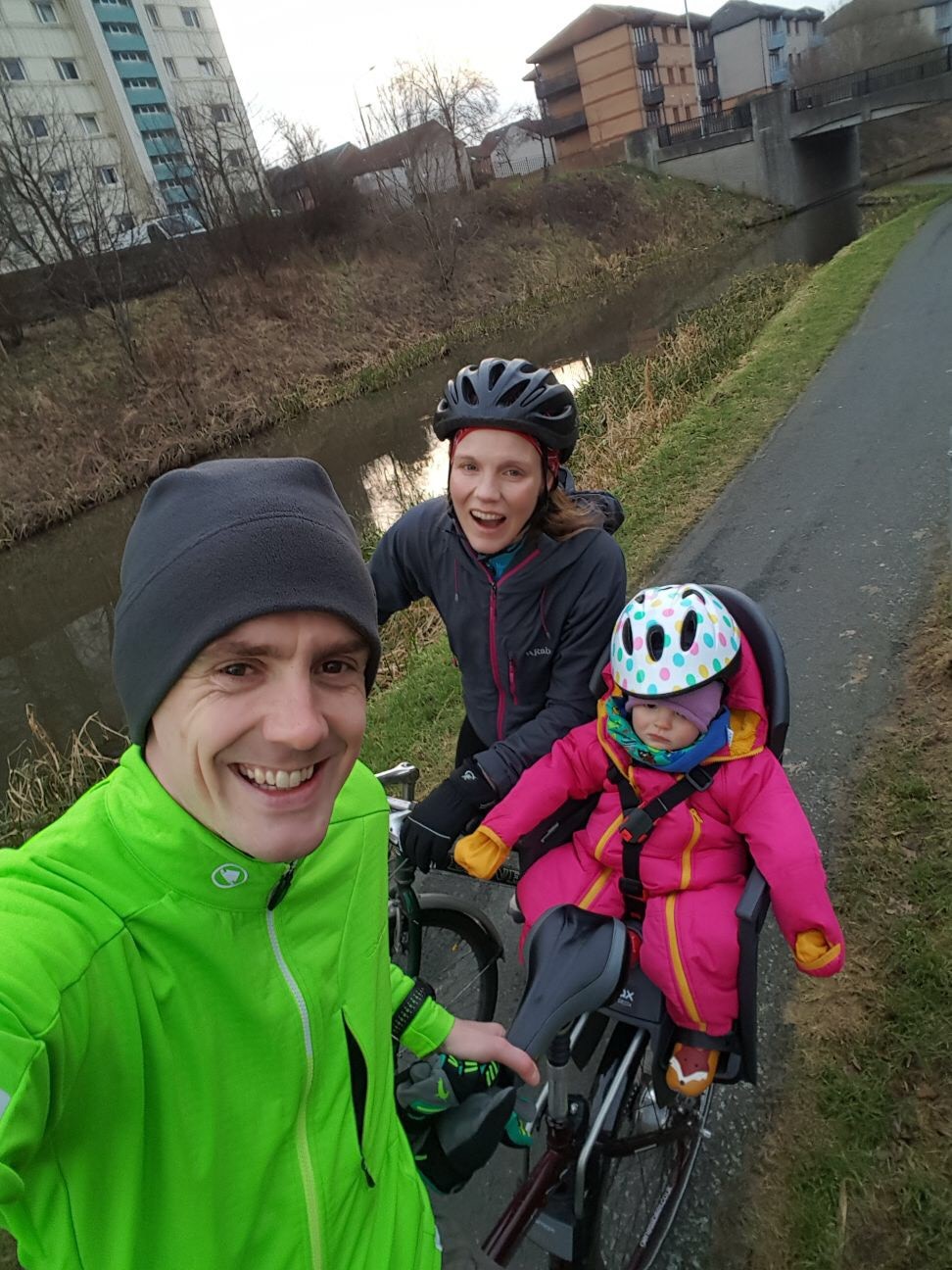What is MND
Find support
I have MND
I am supporting someone
Get involved
Research
About MND Scotland
What’s new?
© MND Scotland 2024
© MND Scotland 2024

Mum to 16-month old Anna, Ruth and her husband, Scott (33), were devastated by the news that she had the progressive terminal illness.
MND is a rapidly progressing terminal illness, which stops signals from the brain reaching the muscles. This may cause someone to lose the ability to walk, talk, eat, drink or breathe unaided.
Ruth said “I was absolutely shocked. The neurologist I initially saw advised me not to google anything. This was the best advice as ignorance is definitely bliss. I didn’t have any idea MND was a possibility.
“I have found it incredibly difficult to come to terms with and not sure I ever will. I had dreamt of having a big family, doing all my favourite things like skiing, cooking, cycling and playing music with my children. We bought a house just before I was diagnosed but due to what the future is likely to hold we had to pull out and have since bought a ground floor flat with a garden. We did however buy the nicest possible flat we could in a lovely area which has helped.
“The most difficult thing for me is my daughter. I can’t bear the thought of not being able to look after her any longer or not be here with her in the future. Like any mum I utterly adore her and I have shed so many tears even thinking about it. It’s tricky though because the thought of not having her is so much worse – she keeps me smiling every day.”
Ruth, who grew up outside Oban, moved to Edinburgh in 2009 after returning from a 2 year stay in New Zealand. Passionate about sport, Ruth and Scott met at Corstorphine Athletics Club and married in 2014 on the Tall Ship in Glasgow.
Ruth was diagnosed MND on 30th November 2017, however she began experiencing symptoms before this which have progressed over time.

“I started noticing my speech slurring – especially after having even a tiny bit of alcohol. I didn’t go for quite a while but it got more and more obvious and I started finding it hard to chew, or brush my teeth, without dribbling everywhere.
“Everything has progressively gotten worse. I was particularly passionate about running, cycling and skiing but also loved swimming, sailing, hill walking and climbing in my years at university. Basically I just loved being active and now I can’t do any of that anymore. Now I’m having problems with the simplest thing; my speech is bad, it’s slurred all the time. I have great difficulty eating and am beginning to notice swallowing is tricky. I have also now got difficulties with my hands – I have lost a lot of dexterity like putting my hair in a plait, cutting vegetables or putting on my daughter’s clothes.”
Ruth is now employed as an Energy Consultant for a charity in Edinburgh, after working for some years previously as a mechanical building services engineer. Although Ruth loves her job she wants to spend her precious time with the most important person in her life, her daughter.
“I had just gone back to work after one-year maternity leave when I was diagnosed. Since being diagnosed I have not been back at work and am not anticipating going back.
“I’m sure that I could carry on in a different capacity but my lack of speech, difficulty with my hands and exhaustion would make it a lot to take on. That coupled with the fact I have a one-year-old who I want to spend as much time with as possible I have decided to no longer carry on at work.
“I am saddened by this a lot as I loved my job. I had an amazing manager, great colleagues and it really was an inspirational place to work. It makes me so sad as I was thrilled to be able to work three days doing something I enjoyed and truly believed in, and then spend the rest of the week with my wee girl.”
Ruth has a great support system which is helping her during this time, “I know my family and friends have all found it hard but luckily I have an amazing family who are all very close. In addition, all of my amazing friends have helped me massively by keeping me doing nice things and staying in touch all the time. It is these small things, that without them, would make this whole situation even worse.
“I have had the offer of counselling from MND Scotland which I’m currently pursuing and many lovely emails offering support. I’m sure I’ll need to take the charity up on a lot more support in the coming months, but for now I am spending every minute I can with Anna and Scott, and my family and friends.
“I didn’t know much about MND before I was diagnosed except that it’s what Stephen Hawking has. That’s why I am speaking out; to raise as much awareness as possible of this beast of a disease.
“I also think that a lot of people don’t know how to react around someone with MND. People can be very awkward when I try to speak and make an automatic judgement. Recently I went to book an appointment in a new hairdresser and the girl went bright red and just didn’t really know what to say. My speech gets worse when I’m stressed so I ended up having to leave without making an appointment. It’s so hard because I’ve always been a chatty person and would speak to anyone and everyone. Hopefully the more we can make people aware of MND, the less awkward people will feel when they come across someone who is living with it.”
Craig Stockton, CEO of MND Scotland, said “I’d like to thank Ruth for bravely sharing her story. Raising awareness of the devastating effects of this disease is vitally important. I’m pleased MND Scotland has been able to help Ruth and we will be here to support her and her family during this time.”
Ruth’s husband and a group of their friends will be running the Edinburgh Marathon and the relay to raise money for MND Scotland. You can donate online here.
Sign up
for newsletter
Get the latest news and events straight to your inbox
You can help create a world without MND